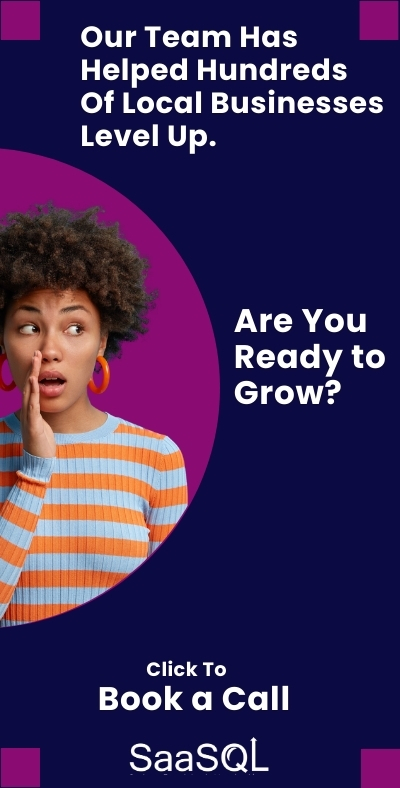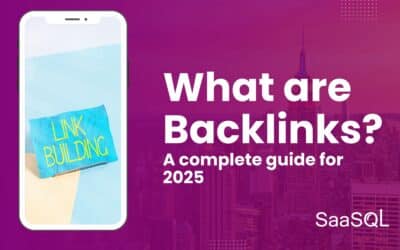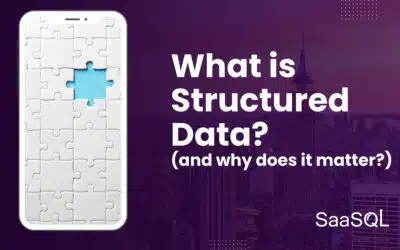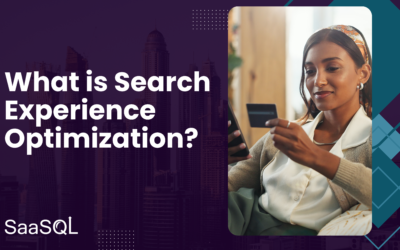What Is AI SEO?
Search is changing. Not slowly. Not quietly. And not in ways most businesses are prepared for.
For more than two decades, digital visibility meant one thing: ranking high on Google. The tactics were clear—optimize for keywords, earn backlinks, build content, repeat. But the rise of generative AI has rewritten the rules. Consumers are no longer just searching—they’re asking. And increasingly, they’re asking tools like ChatGPT instead of typing into a search bar.
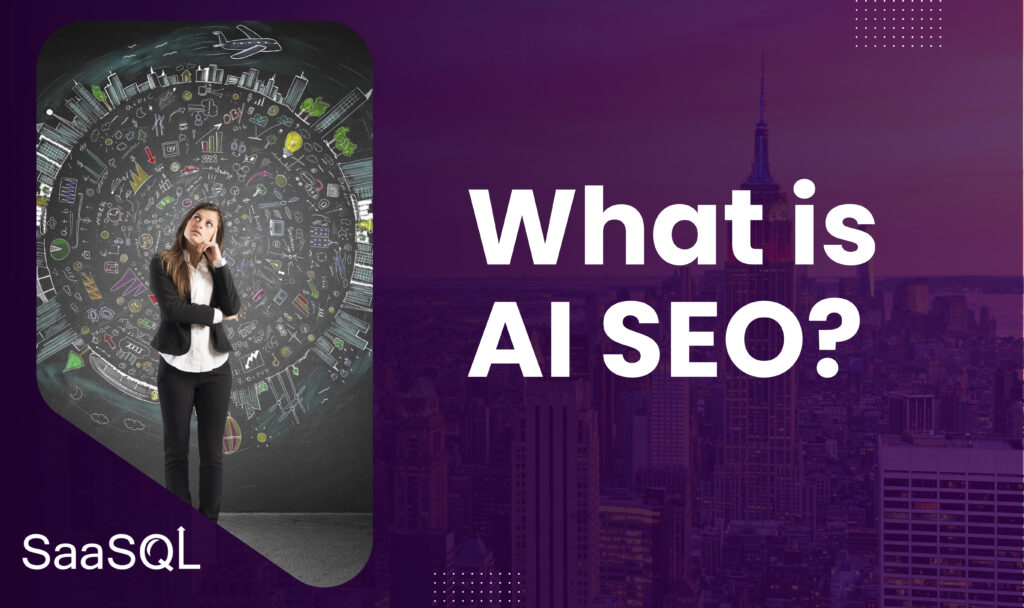
According to a 2025 TechRadar report, 27% of U.S. consumers now turn to AI tools like ChatGPT instead of Google, with that number soaring to 61% among Gen Z users. These aren’t early adopters anymore. This is the mainstream, and it’s accelerating. As a result, the battleground for attention is no longer the first page of search results. It’s the AI-generated answer.

Source: TechRadar
AI SEO is emerging as the next frontier. It’s not about abandoning traditional SEO—but about evolving it. Visibility now depends on how well content is structured for AI interpretation, how authoritative a brand appears in a zero-click environment, and how accurately a machine can understand and trust the information it’s pulling.
This shift has immediate implications, especially for local businesses. In an AI-answered world, only a few brand names or service providers might be mentioned in response to a user query. If you’re not one of them, you’re invisible. The competition isn’t just for traffic. It’s for the AI’s attention.
Understanding how to influence that attention—how to be the source that AI pulls from—starts with mastering the new principles of AI SEO.
This is where the new playbook begins.
Why Doesn’t SEO Work Like It Used To?
Consumer behavior is moving faster than most SEO strategies can adapt. For years, visibility hinged on ranking in Google’s top results. But that model is eroding. AI-driven tools are creating an entirely new search paradigm—one where the concept of a search engine results page is vanishing.
The numbers are telling. In 2023, over half of users aged 18–34 reported using AI chat assistants like ChatGPT or Perplexity instead of Google to answer questions. This shift is driven by what users perceive as better efficiency, accuracy, and personalization. Instead of combing through ten blue links, they get one synthesized, confident answer.
“AI is revolutionizing search, requiring website owners to rethink their SEO strategies.” — Arnesh Koul, Strategy, Colorado State University
This evolution is undermining traditional SEO’s most fundamental goal: getting clicks. Zero-click environments aren’t new—Google’s featured snippets already triggered this trend—but generative AI has amplified it. AI provides the answer upfront. The user never needs to visit your site. That means even well-optimized content that ranks high might never deliver traffic.
The relevance of SERP rankings is shrinking because AI doesn’t show a list. It shows an answer. And the way that answer is built is fundamentally different. AI models synthesize across many sources—blogs, product pages, help docs, local business listings—and summarize what they find. If your business isn’t part of that synthesis, it’s excluded from the conversation, no matter how well your site performs on Google.
The implications are especially serious for local and regional businesses. A typical AI response might include only two or three business names. In a world where fewer results are shown, competition for visibility intensifies. Traditional SEO won’t win that fight. AI SEO will.
How Does ChatGPT (and Other AI Engines) Decide What to Show?
AI doesn’t crawl the web the same way a search engine does. It doesn’t rank results by backlinks or rely solely on metadata. Instead, it interprets context, structure, and trust. The shift isn’t just technical—it’s philosophical. Google was built to find the best page. AI is built to generate the best answer.
When AI models like ChatGPT respond to a query, they pull from a mix of their training data, current sources (if browsing is enabled), and structured information they can parse quickly and confidently. Pages written in clear, human language and formatted with structured data are more likely to be included. Structured data for SEO is no longer optional—it’s foundational.
Unlike search engines that index pages and serve snippets based on click-through rates or engagement metrics, AI synthesizes meaning across content. If your site contributes clarity, expertise, or unique value, AI may cite or summarize it—even if your page doesn’t rank on Google’s first page. Authority is now contextual, not just link-based.
A 2023 study by BrightLocal found that ChatGPT pulled more results from official business websites than Google did—and far fewer from directories like Yelp or Angie’s List. That’s a critical distinction. Google rewards backlinks and domain authority. AI rewards clarity, trust signals, and content that directly addresses the query.
This shift changes how businesses must think about discoverability. The goal is no longer just ranking. It’s being understood—and surfaced—in the AI’s final answer.
How Can Local Businesses Get Noticed by AI?
The AI era rewards brands that make their content easy for machines to read, interpret, and trust. Visibility isn’t just about publishing often—it’s about publishing strategically.
The first principle of AI SEO is structure. That means implementing schema markup on every page—especially for business details, FAQs, products, and reviews. Schema helps AI understand what your content actually is, not just what it says. The more semantic clarity you provide, the more likely you are to be featured in a generated answer.
The second principle is intent. AI tools are built to answer questions, not just match keywords. That means your content should reflect the way people naturally ask those questions. Tools like AnswerThePublic or even ChatGPT itself can help identify the kinds of phrasing users are adopting. From there, build content that directly answers those questions in a confident, accessible tone.
For example, a plumbing company might traditionally optimize a service page for “emergency plumbing in Miami.” In an AI context, it’s more effective to create a question-based heading like “What should I do if my pipes burst at night in Miami?” and then provide a clear, expert answer. That approach mirrors how users are phrasing questions to AI—and makes your content more likely to be surfaced.
The third principle is authority. AI models favor trusted sources. That includes original research, expert commentary, and a consistent brand presence across platforms. When multiple sources point to the same business, with consistent NAP (Name, Address, Phone) data and messaging, the AI’s confidence goes up. Consistency builds trust.
“AI-powered SEO isn’t a trend—it’s the future. Digital publishers who leverage AI strategically will rank higher, scale faster, and dominate search results.” — ePublishing.com, February 25, 2025.
Winning visibility now means stepping into the AI’s context window with clarity and relevance. If your content is well-structured, intentionally written, and backed by authority signals, you increase the likelihood that AI will include your brand in its answer—whether the user ever visits your website or not.
What Can I Do to Show Up in ChatGPT Answers?
Local search is no longer just about maps and directories. It’s about being chosen by AI.
When a user asks, “Who’s the best roofer near me?” or “Where can I get gluten-free pizza in this neighborhood?” AI tools don’t present a list of ten. They present one to three confident answers. That means the visibility stakes for local businesses have never been higher.
To win those limited spots, local business SEO must evolve. Start by ensuring your business information is consistent across all platforms—your website, Google Business Profile, Yelp, Facebook, and local directories. AI relies on this consistency to validate your credibility.
“AI search engines will begin to display content from social platforms to create richer local search results.” — Jenny Bernarde, Social & Community Manager at BrightLocal, BrightLocal
Next, lean into the voice of your customers. Generating reviews and accompanying content is one of the richest sources of natural language about your brand. If AI sees consistent mentions of “same-day service” or “great vegan options,” it will reflect that in how it summarizes your business. Encourage reviews that include keywords tied to your differentiators.
Use structured data to help AI parse your location, hours, services, and specialties. The more clearly this information is embedded, the more likely it is to be featured in a generative response. Consider embedding FAQs written in a conversational tone—these are the types of snippets AI engines are built to use.
Local visibility in an AI-first environment doesn’t come from shouting louder. It comes from providing the right signals, in the right format, across the right places. Authority, consistency, and clarity are the new ranking factors.
Practical Steps for ChatGPT Search Optimization
Unlike traditional SEO, where you optimize for page rank, optimizing for ChatGPT and other AI engines means optimizing for inclusion in a generated answer. The mechanics are different—but actionable.
Start by querying ChatGPT directly. Ask the kinds of questions your customers might: “Who’s the top chiropractor in Boise?” or “What’s the best local CRM for small businesses?” See if your brand appears. If it doesn’t, analyze the language and brands that do.
Reverse-engineer what you find. Look at the sources ChatGPT is drawing from. Are they using structured data? Are they phrasing content in a Q&A style? Are they appearing across multiple trusted platforms? These are all signals that feed AI confidence.
Next, audit your brand’s presence across AI-scraped sources. Ensure your profiles on Google Business, Yelp, LinkedIn, and industry-specific directories are complete and aligned. Inconsistencies degrade trust.
Embed schema markup and FAQ content directly into your most important pages. Include questions you know users are asking. And don’t make them generic—make them local, specific, and nuanced. “Do you offer same-day drain repair in Stamford?” is far more effective than “Do you offer plumbing services?”
Finally, monitor and test regularly. AI outputs shift based on updates, retraining cycles, and new data inputs. Use scheduled queries in multiple tools—ChatGPT, Bing Chat, Perplexity—to track how and when your brand shows up. AI SEO isn’t static. It’s a living discipline that rewards iteration.
Inclusion isn’t an accident. It’s the result of strategic visibility across the language and platforms AI understands best.
Wrapping UP: AI SEO Tactics You Can Use Now
Ultimately, AI SEO isn’t a one-time update. It’s a structural shift in how visibility works—and it’s almost certainly here to stay. Businesses that adapt now will build long-term advantages.
The next edge goes to brands integrating real-time data and dynamic content. Retailers should feed inventory updates. Service businesses can publish live availability. Static websites are already falling behind as AI tools favor fresh, responsive data.
While SaaSQL provides a low-cost, lifetime license to launch your own website chat assistant, you don’t need a custom ChatGPT plugin to compete. Align with platforms that do. A boutique hotel on Booking.com or a local service listed on Yelp still surfaces in AI-powered searches. Think distribution, not just ownership.
Check how your business appears in AI tools. Run prompts. Analyze the results. If you’re absent or misrepresented, that’s a signal to act.
The brands that win will treat AI like a distribution channel—not just a novelty. Train teams to think in structured content. Optimize for inclusion. Stay visible by staying adaptable.
AI SEO isn’t about chasing trends. It’s about aligning with how the internet is being restructured.
Additional Resources
Why People Are Switching from Google to AI Tools Like ChatGPT
Link: TechRadar – “Goodbye Google?”
Relevance: If you’re wondering just how widespread the shift to AI tools really is, this article shares real user data on why people are ditching Google in favor of ChatGPT and provides a strong foundation for the importance of AI SEO.
BrightLocal Study: How ChatGPT Sources Local Business Information
Link: BrightLocal – “Uncovering ChatGPT Search Sources” (2023)
Relevance: This breakdown helps you understand where ChatGPT pulls its information from—and how your business can get included in those responses through AI SEO tactics.
Google’s Official Guide to Structured Data
Link: Google Search Central – “Introduction to Structured Data”
Relevance: If you’re not sure how to implement structured data, Google’s own guide gives you the starting point you need to optimize your site for both AI SEO and traditional search engines.




